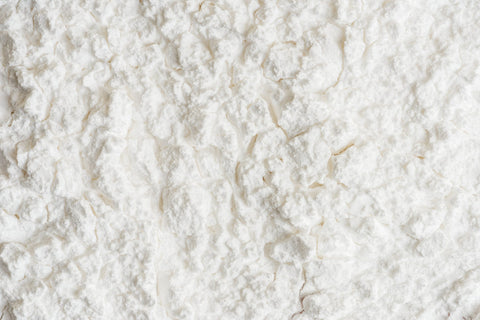What Is MSM
Biologically active sulphur is one of the most critical nutrients for our bodies to remain youthful and energetic.
Methylsulfonylmethane (MSM) is the oxidized form of dimethyl sulfoxide (DMSO), an organic sulphur compound. It is also known as dimethyl sulfone (methyl sulfone) or DMSO2.
It is an organic compound found in human cells and many foods including garlic, onion, vegetables, fruits, whole grains, or green plants and herbs such as horsetail herb (1,2).
MSM is an excellent source of natural sulphur, which is an important component of proteins, hormones, enzymes collagen, and keratin (3,4). Sulphur is needed for many critical bodily functions every single day, and MSM is a well-known sulphur donor.
MSM has been used orally and externally for various health problems including neuropathies, osteoarthritis and rheumatoid arthritis, hair and skin problems (to reduce inflammation and speed the healing of scars, cuts, and wounds), chronic pain, osteoporosis and various inflammatory conditions.
Sulfur Cycle
MSM is an integral part of the process known as the sulfur cycle. Sulfur is first taken up from the soil by plants. Plants release it into the atmosphere as the dimethyl sulfide. The dimethyl sulfide is oxidized in the atmosphere to dimethyl sulfoxide (DMSO), which then returns to the soil via rain. In this way, the sulfur cycle repeats itself over and over again.
Sulfur Deficiency
It is believed that some of the healthiest cultures in the world have the highest levels of sulphur in their diet. Unfortunately, there are reasons to believe that people living in many developed countries including the UK and US are very low in this nutrient due to unhealthy nutritional habits and refined diet.
Also, modern farming practices involving the use of fertilizers containing phosphates depleted many vital nutrients (including sulphur) from the ground. In addition, these phosphates in our body interfere with sulphur absorption farther contributing to its deficiency.
Icelanders, on the other hand, whose diet is high in sulphur, are known for their low rates of heart disease, depression, obesity, or diabetes. Researchers believe it has a lot to do with the volcano eruptions that enriched the soil of that country with sulphur ash.
How MSM Can Help Improve Health
It is believed that by supplying the human body with sulphur, MSM helps to make more amino acid methionine that helps synthesize various important compounds essential for proper metabolism of foods, absorbing nutrients or a healthy connective tissue (5).
By helping our body to produce more glutathione (the most important antioxidant), MSM helps reduce oxidative damage in the body, slows the ageing process, and supports immune system function. Low levels of glutathione create a strong susceptibility for genetic damage and chronic inflammatory disease (6). This glutathione recycling ability makes MSM a supreme aid for people with allergies, asthma, chronic pains, headaches, muscle cramps, and other problems. MSM is also beneficial for improving the integrity of the gastrointestinal lining and recommended for individuals with IBS, IBD, diarrhoea, bloating and constipation.
MSM gives up its sulphur to help the body to form amino acids methionine and cysteine and more collagen and keratin found in hair and nails.
Another interesting fact about MSM (Methyl-Sulfonyl-Methane) is that it is similar in structure to Coenzyme Q-10, one of the most potent antioxidants found in every cell in the human body especially in the heart.
Food Sources
Provided the soil contains enough sulfur, MSM should be found in a variety of foods especially vegetables (garlic, cabbage, broccoli, leeks, chives, alfalfa sprouts, beets, onion, Brussel sprouts, radishes, watercress, kale, & collard greens, asparagus), whole grains (such as millet), organic soybeans, Brazil nuts, almonds, walnuts, seeds, and fruits such as apples and raspberries (7).
It can be is also found in green clay, certain species of algae, and green plants or herbs such as horsetail (2).
Raw Vs Cooked
MSM is water-soluble and very easily evaporates when it is cooked at high temperatures. Pasteurization reduces the MSM content in food by over 50%. Therefore, the best way to get sulphur from veggies is by consuming them raw.
Possible Health Benefits
Calcium Phosphate Dissolver
MSM is known as a calcium phosphate dissolver. In this way, it helps break down and prevent the accumulation of the bad calcium in the soft tissue (brain, kidneys, arteries, etc.) preventing calcification regarded as the root of many degenerative diseases (hardening of arteries, kidney stones, calcification of pineal glans, constipation, etc.). Other very important nutrients that help prevent calcification are Vitamin K2 (MK-7) and Magnesium.
Osteoarthritis
MSM may help ease arthritis as it helps the body to form new joint and muscle tissue while reducing inflammatory responses that contribute to stiffness and swelling. Sulphur also helps regulate immunity (especially when combined with Vitamin D3, magnesium, Zinc & Selenium) and inflammatory immune responses. Sulphur needs to be present for our cells to release many by-products and excess fluids that can accumulate and cause swelling.
Some research suggests MSM may help improve joint function and reduce symptoms of osteoarthritis including pain, inflammation and swelling. In studies, it was used either alone or in combination with glucosamine (1.5 to 6 gr daily in two to three divided daily doses (8).
A clinical trial testing the effects of MSM supplements on joint pain caused by osteoarthritis found that compared to a placebo, MSM (500mg doses three times daily with 500mg glucosamine three times daily) taken over 12 weeks improved symptoms including pain, swelling and joint mobility (9).
Some studies have also found that MSM may work better than glucosamine if you choose to only take one of these (10).
Antioxidant Effects & Immune System Support
MSM helps to reduce the harmful effect of free radicals (11,12) by providing sulphur required to produce antioxidants including amino acids methionine, cysteine and taurine as well as glutathione, regarded as the strongest antioxidant and most important for maintaining the strong immune system, detoxification, slowing the ageing process, etc. (13,14,15). MSM may also support our immune system by reducing levels of inflammatory compounds. Some researchers suggest that MSM may impose a beneficial effect on other antioxidants including selenium, vitamins C, vitamin E, or coenzyme Q10 (16).
Hair Loss
Many MSM users claim it helped them to treat hair loss. It is believed that sulphur-rich compounds such as MSM are very beneficial in strengthening the hair. For best results, it is recommended to use MSM both internally and externally. MSM has been shown to help boost collagen and keratin levels, two nutrients essential to form new hair strands and rebuild strong nails and healthy skin.
An animal study found that MSM may reduce hair loss and alopecia. When applied to the skin of male rats along with Magnesium Ascorbyl Phosphate MSM improved hair growth by increasing collagen and keratin levels (17).
Skin Health
Sagging skin and wrinkles, as well as dry, cracked skin are developed as a result of a collagen deficiency. MSM works together with Vitamin C to help body make more collagen, thus improving skin health.
In studies on animals, Methylsulfonylmethane (MSM) was found to have a beneficial effect on skin and nails (18).
According to one study, Methylsulfonylmethane (MSM) combined with silymarin (from Milk thistle) improved skin redness, papules, itching, hydration, and returned the skin to normal colour in erythematous-telangiectatic rosacea (19).
Muscle Pain & Muscle Recovery
Some experts believe that MSM may help repair rigid fibrous tissue cells in muscles that are damaged during muscle usage (20). MSM helps repair the fibrous tissue cells in our muscles that often get damaged during exercise. It can also restore the flexibility and permeability of muscle cell walls within. As a result, nutrients can pass through the tissues more easily, facilitating repair process faster and removing lactic acid, accumulation of which causes muscle pain after exercise.
A daily dose of 3g of MSM supplementation for 30 days reduced muscle soreness in moderately active men (21).
In animal studies, MSM reduced muscle damage promoting an antioxidant activity that inhibited lipid peroxidation. This, in turn, helped reduce blood levels of CK and LDH that are usually elevated as a result of intense muscle usage. MSM also helped remove excess lactic acid, which causes muscle soreness after intense exercise (22).
According to a study published in The Journal of Sports Medicine and Physical Fitness, 10 days of MSM supplementation helped decrease muscle damage through its beneficial effect on antioxidant capacity (22).
MSM can also reduce fatigue after exercise and stressful events and promote good mood, increase energy levels, and support normal digestion (15).
Energy
Since MSM helps remove cellular toxins by improving the permeability of the cells, less energy is required to deal with the accumulation of toxins. As a result, more energy is available for the cellular healing process.
By improving the permeability of the cells MSM also promotes the assimilation of nutrients. Digestion is the biggest energy requirement of the body (every day approximately 70-80% of your energy is spent on digestion). Since MSM increases the absorption of nutrients the energy expenditure on digestion is significantly reduced.
Allergies
Some experts postulate that MSM is probably able to help easy allergic symptoms through its antioxidant, immune-modulating and anti-inflammatory action. Studies also revealed that it can help decrease the release of cytokines and prostaglandins, thus reducing allergic reactions (23). In addition, it may bind to the mucosa thus helping to block host-allergen contact thus minimising the allergic response.
According to one study, various respiratory symptoms (such as cough and shortness of breath) as well as allergic symptoms (including stuffed and runny nose, sneezing, watery and itchy eyes) were reduced in participants with seasonal allergic rhinitis as a result of taking a daily dose of 2600mg of MSM for four weeks (24).
Haemorrhoids
MSM seems to help treat haemorrhoids. Applying a gel containing MSM along with tea tree oil can reduce pain and swelling caused by haemorrhoids. A gel containing MSM in combination with hyaluronic acid and tea tree oil reduced pain during defecation, bleeding, and inflammation associated with haemorrhoids after two weeks (2).
Methylation Support
There are reasons to believe MSM is a methyl donor. It means that like vitamin B12, B6 and folate, it may help reduce homocysteine levels.
Digestive Problems
MSM may help to heal the damaged lining of the digestive tract thus preventing or helping recover from the leaky gut syndrome, colitis, and inflammatory bowel diseases (25,26).
In people with the leaky gut syndrome, sulphur from MSM helps stop toxins from being absorbed into the blood through the damaged gut wall, thus preventing an inflammatory response.
Parasites
Some experts (including Robert Herschler) maintain that MSM may create a form of coating in the gut making it more difficult for parasites to attach themselves to the walls thus forcing them to be eliminated from the body with the stool.
Detoxification & Liver Health
Sulphur is a mineral that is present in every cell of the body, and it plays a key role in liver metabolism. One of the most important features of MSM (sulphur) is that it makes our cells (including liver and brain cells) more permeable thus helping them remove toxins and metabolic waste products. At the same time, such increased permeability also helps essential nutrients and water to enter the cell. MSM also helps remove heavy metals.
Candida
MSM helps reduce the overgrowth of Candida albicans (a very common problem causing various bad symptoms) by helping maintain the right PH in our body that prevent Candida to thrive. Sulphur is essential in maintaining the body's acid/alkaline (pH) balance.
Dosage
Generally, 500 mg of MSM two to three times daily is recommended as the starting dose for those who suffer from osteoarthritis and other inflammatory problems. According to one of the mentioned above studies, a daily dose of 1,200 mg was used for 12 weeks with good results.
Based on the current knowledge we have on MSM, it is believed that a dose of up to 6 grams, divided into three daily doses seems to be safe and well-tolerated (27).
If your purpose is to treat various health problems including joint and muscle pain, inflammatory conditions, hair loss, skin problems and other listed above conditions taking 1-2 grams 2-3 times daily with meals seems to be the best options.
Possible Side Effects
Since MSM is natural and already found in the human body, it seems to be very well-tolerated. There has never been a documented case of MSM toxicity, so it is regarded as very safe. However, the very long-term safety of Methylsulfonylmethane (MSM) is not well known, but MSM is probably safe to take for up to 6 months.
Since our knowledge about the safety of long-term supplementation with MSM is not sufficient I always suggest taking MSM twice or three times daily with meals with one day break after every week, one week break after every month, and one month break after every six months.
Possible side effects of overdosing MSM may probably gastrointestinal discomfort, diarrhoea, nausea, swelling, fatigue, insomnia, and in some oversensitive individuals also allergic reaction, skin rashes, and headaches, etc. (28).
It is always better to start MSM from smaller doses such as 500mg per day with a meal and gradually increase to not more than 1-2g twice or three times daily.
Methylsulfonylmethane (MSM) Vs Dimethyl Sulfoxide (DMSO)
Dimethyl sulfoxide (DMSO) and methylsulfonylmethane (MSM) are two chemically related substances. DMSO is used externally (applied to the skin) while MSM should be taken internally as it is not readily absorbed through the skin (12). It is also believed that MSM can pass the brain-blood barrier and positively influence the brain and mental health (29). When DMSO is taken orally or applied on the skin, about 15% of it is converted to MSM (30).
References
- Methylsulfonylmethane Suppresses Breast Cancer Growth by Down-Regulating STAT3 and STAT5b Pathways - PMC (nih.gov)
- A multicentered, open-label trial on the safety and efficacy of methylsulfonylmethane in the treatment of seasonal allergic rhinitis - PubMed (nih.gov)
- Efficacy of methylsulfonylmethane (MSM) in osteoarthritis pain of the knee: a pilot clinical trial - ScienceDirect
- Sulfur in human nutrition and applications in medicine - PubMed (nih.gov)
- Small Intestinal Absorption of Methylsulfonylmethane (MSM) and Accumulation of the Sulfur Moiety in Selected Tissues of Mice - PMC (nih.gov)
- Glutathione in disease - PubMed (nih.gov)
- Naturally occurring levels of dimethyl sulfoxide in selected fruits, vegetables, grains, and beverages | Journal of Agricultural and Food Chemistry (acs.org)
- Efficacy of methylsulfonylmethane supplementation on osteoarthritis of the knee: a randomized controlled study | BMC Complementary Medicine and Therapies | Full Text (biomedcentral.com)
- Meta-Analysis of the Related Nutritional Supplements Dimethyl Sulfoxide and Methylsulfonylmethane in the Treatment of Osteoarthritis of the Knee - PMC (nih.gov)
- Methylsulfonylmethane and boswellic acids versus glucosamine sulfate in the treatment of knee arthritis: Randomized trial - PubMed (nih.gov)
- Dimethyl sulfone (DMSO2) in the treatment of interstitial cystitis - PubMed (nih.gov)
- Effects of dimethyl sulfoxide on the oxidative function of human neutrophils - PubMed (nih.gov)
- Effect of chronic supplementation with methylsulfonylmethane on oxidative stress following acute exercise in untrained healthy men - PubMed (nih.gov)
- Effect of Single Dose Administration of Methylsulfonylmethane on Oxidative Stress Following Acute Exhaustive Exercise - PMC (nih.gov)
- Incorporation of methylsulfonylmethane sulfur into guinea pig serum proteins - PubMed (nih.gov)
- The effect of methyl sulphonyl methane supplementation on biomarkers of oxidative stress in sport horses following jumping exercise - PMC (nih.gov)
- untitled (webmoa21.co.kr)
- US4296130A - Methylsulfonylmethane and methods of use - Google Patents
- Combined effects of silymarin and methylsulfonylmethane in the management of rosacea: clinical and instrumental evaluation - PubMed (nih.gov)
- Effect of methylsulfonylmethane supplementation on exercise - Induced muscle damage and total antioxidant capacity - PubMed (nih.gov)
- Influence of methylsulfonylmethane on markers of exercise recovery and performance in healthy men: a pilot study - PMC (nih.gov)
- Effect of methylsulfonylmethane supplementation on exercise Induced muscle damage and total antioxidant capacity | Request PDF (researchgate.net)
- The anti-inflammatory effects of methylsulfonylmethane on lipopolysaccharide-induced inflammatory responses in murine macrophages - PubMed (nih.gov)
- A multicentered, open-label trial on the safety and efficacy of methylsulfonylmethane in the treatment of seasonal allergic rhinitis - PubMed (nih.gov)
- Digestive recovery of sulfur-methyl-L-methionine and its bioaccessibility in Kimchi cabbages using a simulated in vitro digestion model system - PubMed (nih.gov)
- The effect of methylsulfonylmethane on the experimental colitis in the rat - PubMed (nih.gov)
- Methylsulfonylmethane (MSM) Uses, Benefits & Dosage - Drugs.com Herbal Database
- MSM Herbal Supplements Side Effects, Benefits, Uses & Dosage (medicinenet.com)
- Accumulation of methylsulfonylmethane in the human brain: identification by multinuclear magnetic resonance spectroscopy - PubMed (nih.gov)
- Pharmacokinetics and distribution of [35S]methylsulfonylmethane following oral administration to rats - PubMed (nih.gov)
Sources
- MSM Supplement Improves Joints, Allergies and Gut Health >
- https://selfhacked.com/blog/methylsulfonylmethane-msm/ >
- https://drjockers.com/health-benefits-msm/
- Glutathione, Oxidative Stress And Aging >
- https://www.webmd.com/vitamins-and-supplements/msm-methylsulfonylmethane-uses-and-risks#2
- https://www.ncbi.nlm.nih.gov/pmc/articles/PMC5097813/
- https://www.ncbi.nlm.nih.gov/pmc/articles/PMC5521097/
- https://www.ncbi.nlm.nih.gov/pubmed/22492249
- Schulz JB, Lindenau J, Seyfried J, Dichgans J. Glutathione, oxidative stress and neurodegeneration. Eur J Biochem. 2000 Aug;267(16):4904-11. PMID: 10931172
- Kalinina EV, Chernov NN, Novichkova MD. Role of glutathione, glutathione transferase, and glutaredoxin in regulation of redox-dependent processes. Biochemistry (Mosc). 2014 Dec;79(13):1562-83. PMID: 25749165
- Mytilineou C, Kramer BC, Yabut JA. Glutathione depletion and oxidative stress. Parkinsonism Relat Disord. 2002 Sep;8(6):385-7. PMID: 12217624
- Reid M, Jahoor F. Glutathione in disease. Curr Opin Clin Nutr Metab Care. 2001 Jan;4(1):65-71. PMID: 11122562
- Images: Copy space photo created by rawpixel.com - www.freepik.com
Any information or product suggested on this website is not intended to diagnose, treat, cure or prevent any medical condition. Never disregard medical advice or delay in seeking it because of something you have read on this website. Consult your primary healthcare physician before using any supplements or making any changes to your regime.





